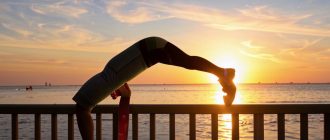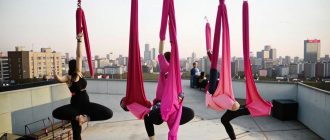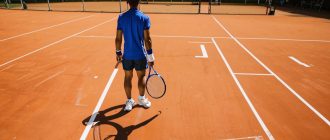This is not the first time we have been in contact with Stepan. The previous interview was in 2018, after he beat his rivals at the Moscow Marathon. And here is another victory, now in Kazan. How does the runner manage to maintain his form and continue to show excellent results? We reveal all the secrets in a big interview with the athlete.
– When we talked to you after your victory in 2018, you talked a lot about your goals, about your attitude to running, and how do you define what has changed in you over these two years?
– I guess back then I was more ambitious in the pursuit of seconds, I still felt the energy and impulse to try to improve my personal result, to run, let’s say, out of 2:10. But time passed, I faced some challenges and realized that it’s not that easy to do. I revised my views and priorities and got a bit tired of the battle with seconds. I’m tired of that endless waiting when you get to the start line and run, endlessly looking at the stopwatch to see how your speed is, if it’s slowing down. I just want to enjoy the competition now.
– What goals are coming to the forefront right now, if not seconds?
– To find a certain comfort zone where both sport and family can exist – that’s the balance.
– What problems did you face when you were in the situation of chasing seconds, time?
– It’s just that when you want to show the maximum you are capable of, you have to experiment and test yourself somewhere, to go on a razor’s edge, and you don’t always manage to get through. There are times when you break down and bounce back, come to the conclusion that it’s not that easy. The years are not young – over 30, and you need to really assess your capabilities and approach things wisely.
– But marathons are still in your plans….
– Of course, I want to be competitive, so I will fight. Then young people will come and replace me. The Russian Championship has passed, I didn’t win, I was second, so there are guys who can overtake me. Although I realized that my form was not quite perfect and I didn’t have time to gain momentum, but I had to go out and show the maximum of what I have at the moment.
– How do you prepare for long distances – is it a well-established scheme or do you have to improvise somewhere?
– For runners with a lot of experience, as a rule, preparation takes at least three months. But this is on the condition that you have run a lot before, and your rest is not when you sit on the couch and click channels on TV, but at least once a day you go out and run 10-12 kilometers, plus add load in the gym. It’s a rest for us. And after such a period you need at least 3.5 months, because after the rest you can’t run at the previous running volumes and speeds – you get injured. Muscles and ligaments weaken quickly, so they need to be smoothly prepared for the load. And we call this smooth build-up the base period. The main thing is to prepare your heart properly, because without a good, strong motor you will not run a marathon.
Then you start to gradually increase your speed and at the same time plan your time to the start. By the speeds you already estimate what you are capable of. And the final part – a month before the marathon, we go somewhere in the mountains to increase hemoglobin mass and thus improve the result.
– And how are the locations for training camps chosen – why Kabardino-Balkaria?
– It’s generally a rather difficult and slippery subject – where to conduct your training. Sometimes you arrive and either the weather is bad or something just doesn’t go well. We chose Kabardino-Balkaria because the borders are closed now. It’s a sufficient altitude, but the conditions there are not exactly good for running, and you have to be happy with what you have. A good place is Kyrgyzstan, but there’s strict entry because of the pandemic and quite expensive tickets. Also, the weather there is great. Even in February you can run without snow. There are no places in Russia where there is no snow in the mountains in February and March.
– How prepared were you for the Kazan Marathon?
– Well, probably, if we take the ideal form as 100%, then at this start I was 65-70% ready. This is due to the fact that the Russian Championship was held just a month before the Kazan Marathon, it is almost unrealistic to run two marathons in a row and show high results everywhere. In addition, you have to take into account your hormonal and psychological state.
– Is there a certain medical preparation before the marathon?
– Yes, if a runner is inexperienced and does not feel any problems, he should undergo a full check-up, but I have been running for many years – if I feel that something is wrong, I slow down.
– Speaking of psychological preparation, how does it happen? I know that some runners lock themselves away for a few days, so they don’t see anyone, don’t hear anyone.
– Yes, some are very closed off, I would say most runners are. But it’s twofold – if you are fully focused only on running, after a failure (I’m talking about my personal experience now) it’s twice as hard for you, and if you do other things, it’s easier to go through hard periods emotionally. But you can’t spread yourself too thin, either – on the same communication, on endless traveling. Logistics eat up a lot of energy – I mean traveling. So you need to find a balance, to close down a little, but at the same time be open to other people and other activities. It’s better than focusing only on running.
– In how much time does this phase of active mental preparation start?
– About a month in advance. I don’t like to dissipate a week before the start. The thing is that at this time we go on a protein-carbohydrate diet and somehow you can’t do anything else, because the diet is very hard. It feels like you’re sick – no energy, no energy, can’t think about anything, so that saves us.
– Do you have any rituals before the course itself?
– Yes, I try to find excitement, worries. It helps to trigger adrenaline in the body. Because without it, it’s hard to run fast, and at a competition you have to run twice as fast as you ran in training. Or twice as fast. Conditionally, if you run 10 km at training at a speed of 3.10 and suffer, agonize, think “how hard it is”, “how can I run four times as fast at the competition?”, and in the end, due to the adrenaline that you will cause in yourself the day before the start, you run 42 km at the same speed and think: “how can I do that?”.
– How do you get that adrenaline?
– You have to tense yourself up a bit, think about the upcoming race – where it will be hard, how your rivals will act – it helps. Some runners don’t know how to generate excitement, they don’t like this state because it creates discomfort, but I’m convinced that it only helps me.
– Looking back on your experience, what was the most difficult thing for you on the distance in the beginning and now – are they the same things?
– In a marathon, the hardest thing is the training. It used to be easier for me because there were more things that could motivate me or inspire me emotionally. Now I look at many things more calmly, the necessary emotional state is not evoked, which makes training harder. For me, the hardest part of the distance itself has always been after the 30th kilometer, when your legs are completely tired and you have to run without legs. At this point you can’t feel anything below the pelvis, it’s like there’s nothing there and you have to run on willpower and try to maintain your speed. I’ve also lost the ability to correctly allocate my efforts – I used to be more cool-headed about it and could run the second half much faster.
– When you run through such beautiful places as Kazan, do you get to see them properly?
– If you run in pursuit of seconds, you don’t have time to see anything – you are concentrating on yourself and your sensations – scanning the state of your body. And when you run and just get high, enjoy the struggle, as I did at the Kazan Marathon, for example, you have time to enjoy the race and look at the competition in a different way.
– Do you listen to music during starts, during training?
– Yes, it’s usually quite calm music. Someone will say too calm, but I don’t need to listen to rock in running – I don’t like that kind of music. Running is more of a calm subject for me. Someone even wrote to me in the comments: “Only drink wine or have sex to such music”.
Sometimes you go out for a run with such a wild stream of thoughts that you need to destroy, and through running and music I manage to do it. After the run, I closed the door and realized that my head was much more free. There have been times and vice versa, when you need to think about something, and you feel during the run that your thinking is clearer and more concentrated. You start to see the situation from different angles.
– Do you ever have distracted thoughts at the starts?
– No, usually only full concentration on the race, because you have invested a lot in preparation and you must not blow it all – if you relax a little, the adrenaline will leak out and it will be harder. You have to constantly put energy into the furnace.
– How do you feel when you run to the finish line and realize that you are the first?
– If you’ve sorted out your rivals a bit in advance, as I did at the Kazan Marathon, you get some euphoria and immediately remember your past labors, you realize that you didn’t work hard for nothing, you endured, you ran in the cold, in a snowstorm, and in the mountains. But it lasts not so long, I would like to stretch this moment more.
Then comes the next day, a new preparation. If you completely relax, you will be overtaken by others, so the finish is over – the next stage of preparation begins. Lately I’ve started to catch myself thinking that you should appreciate such moments – they are not so many, but they give you strength to work even harder in the future.
– What is the usual break between big starts?
– Between marathons it is desirable to go to zero for a month. After the start, you should gradually reduce the load for two weeks, but still move. Then you can rest for two weeks and then start training again.
– How do you usually feel the same day, the day after the marathon?
– There are always painful sensations – either my legs are aching or my muscles hurt a lot, but it is a pleasant pain. If the muscles are sore, it means that they are developing, and over time the legs only get stronger. And you also realize that the main start is over and you can finally relax and have a cake or a glass of wine”.






